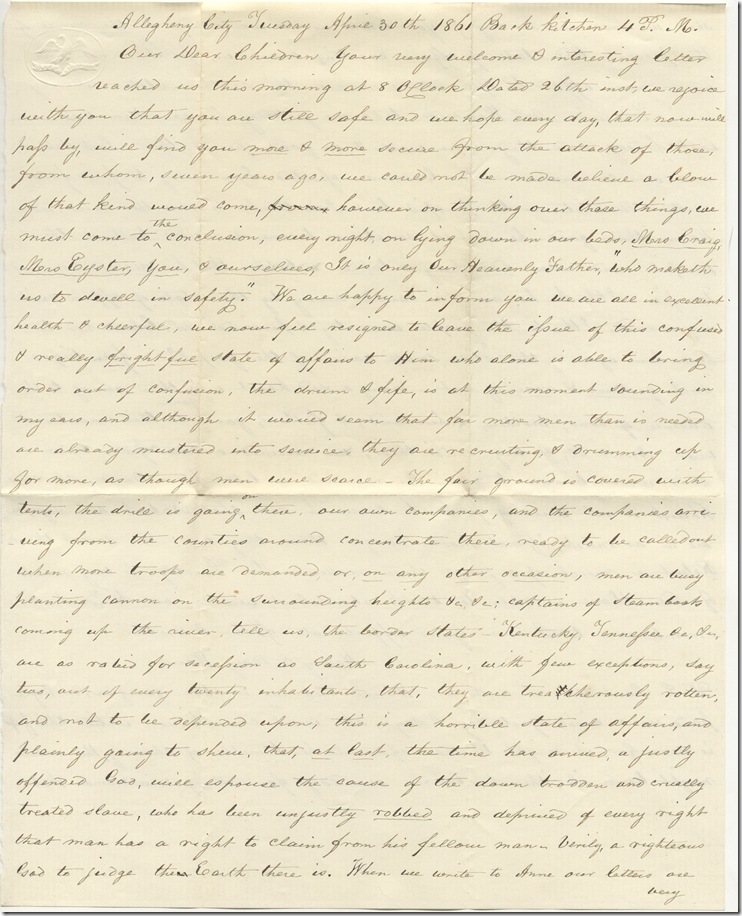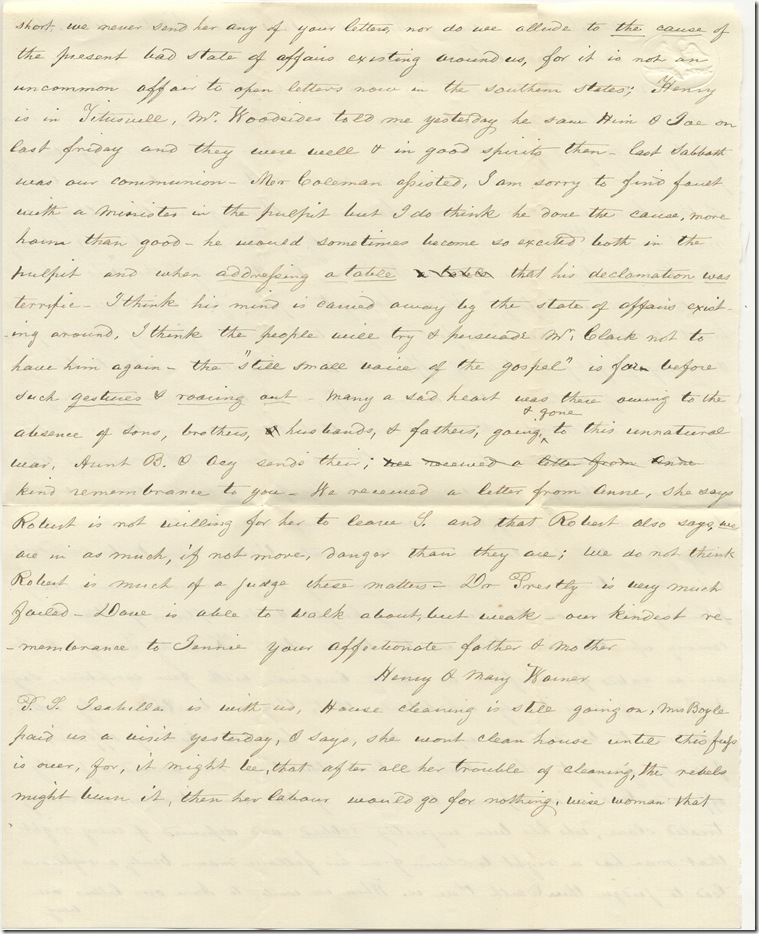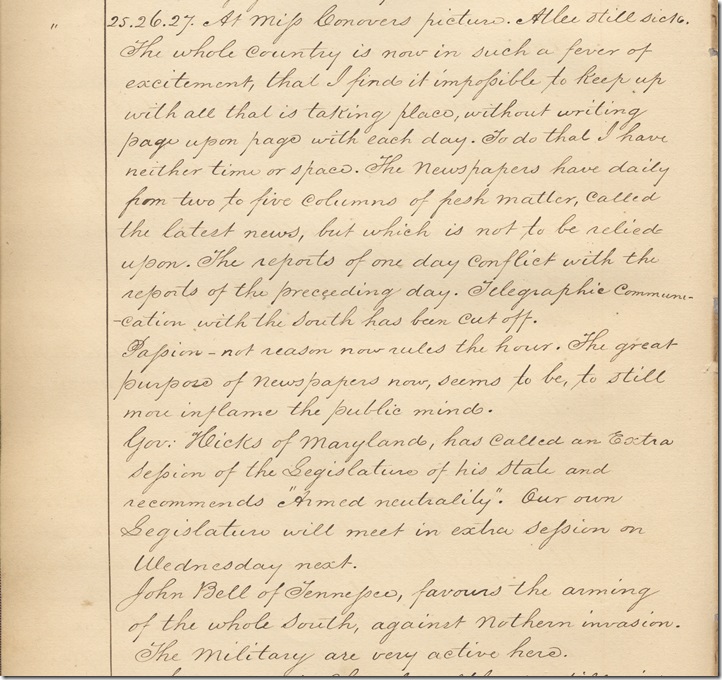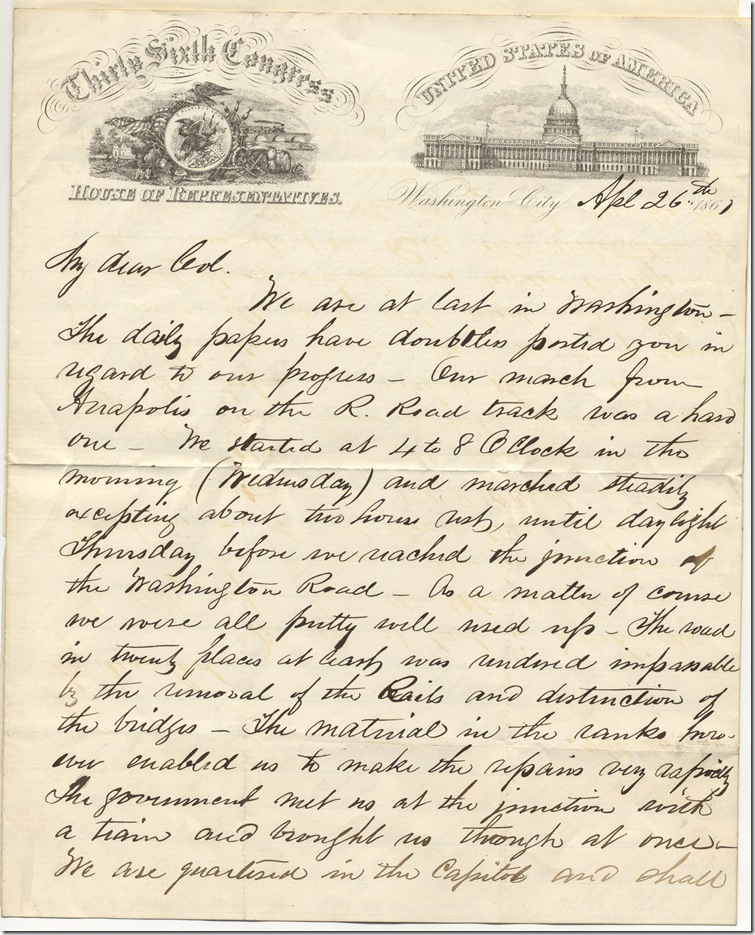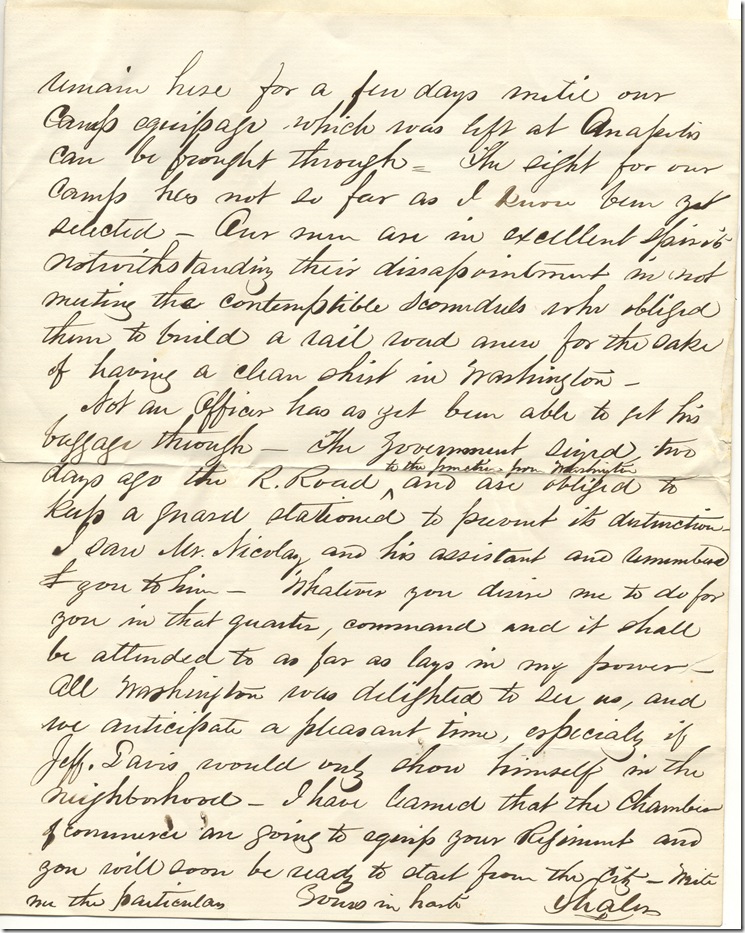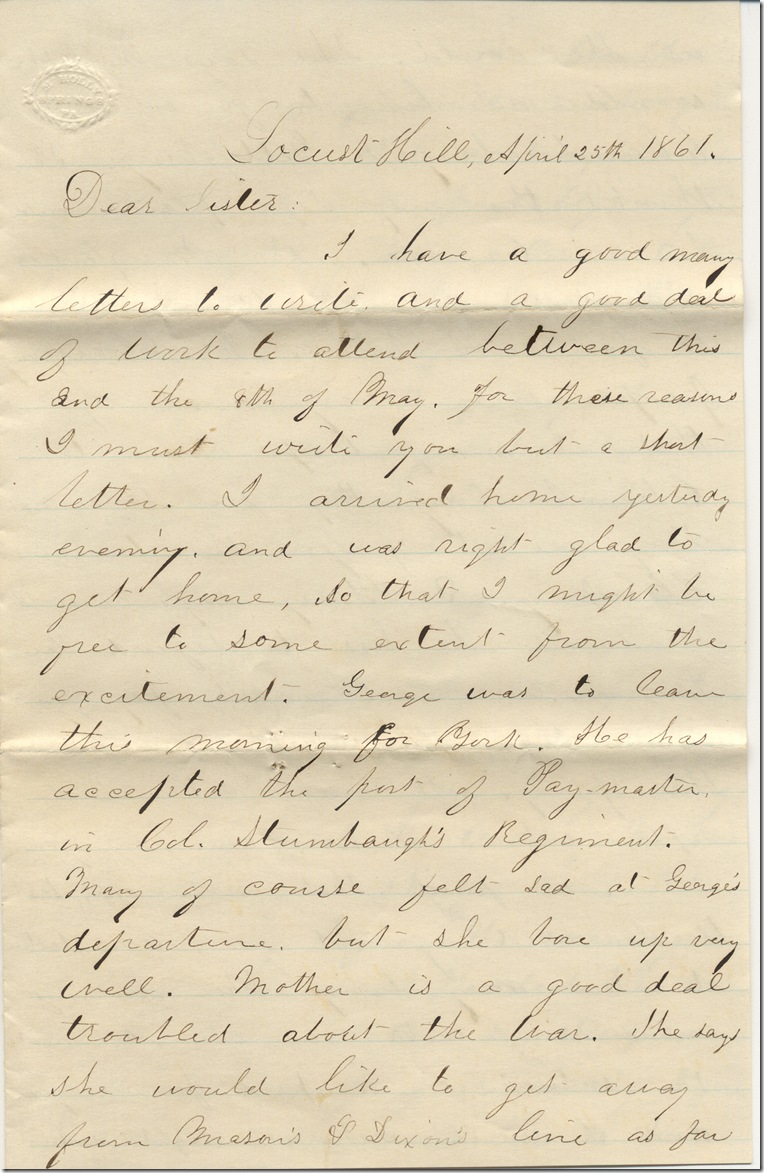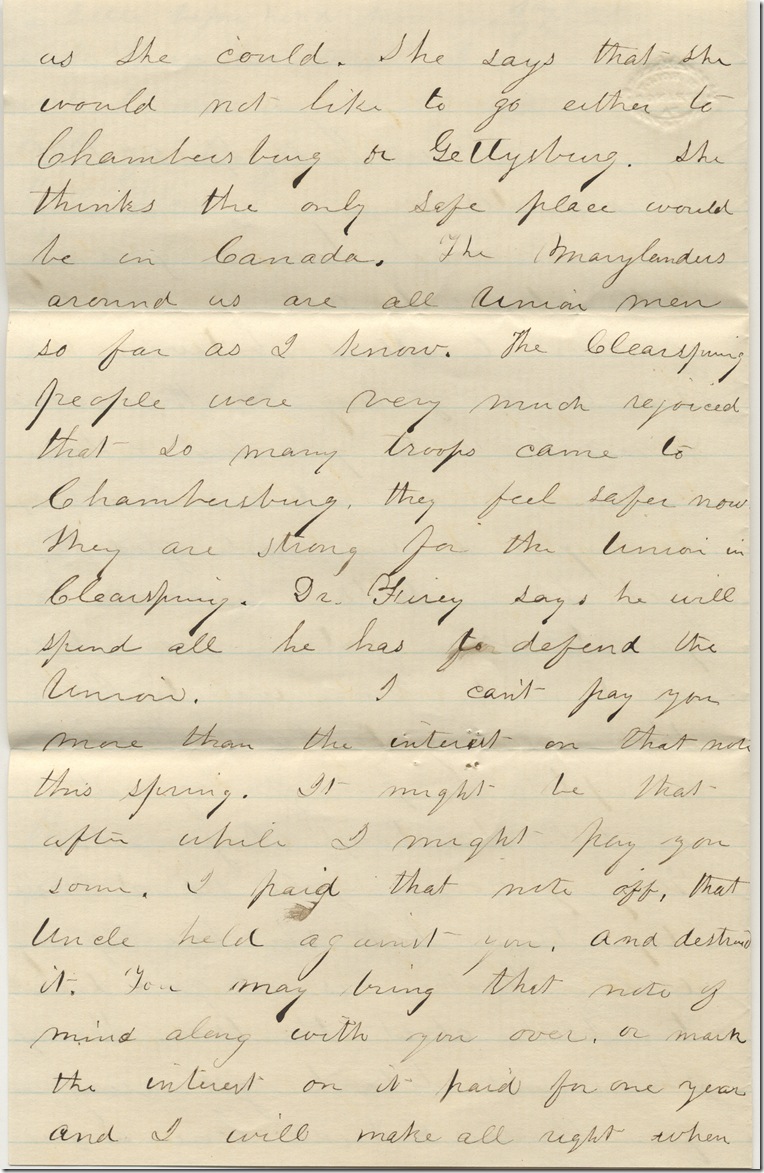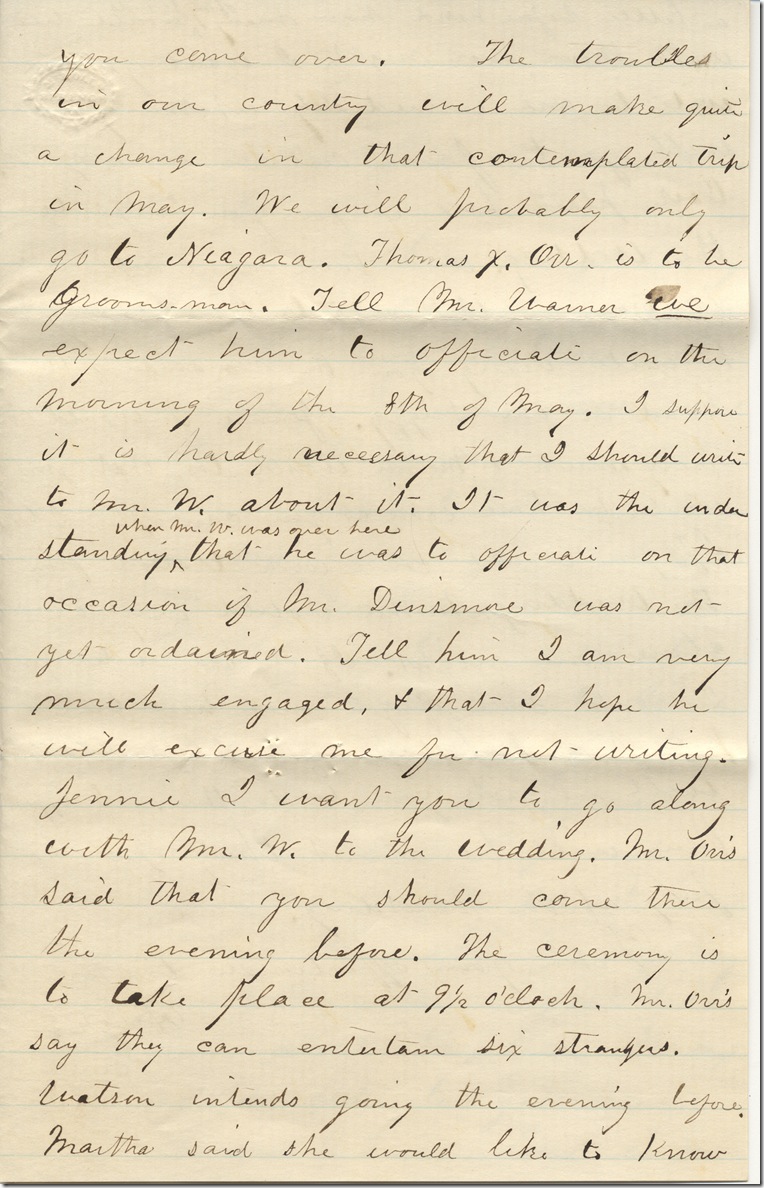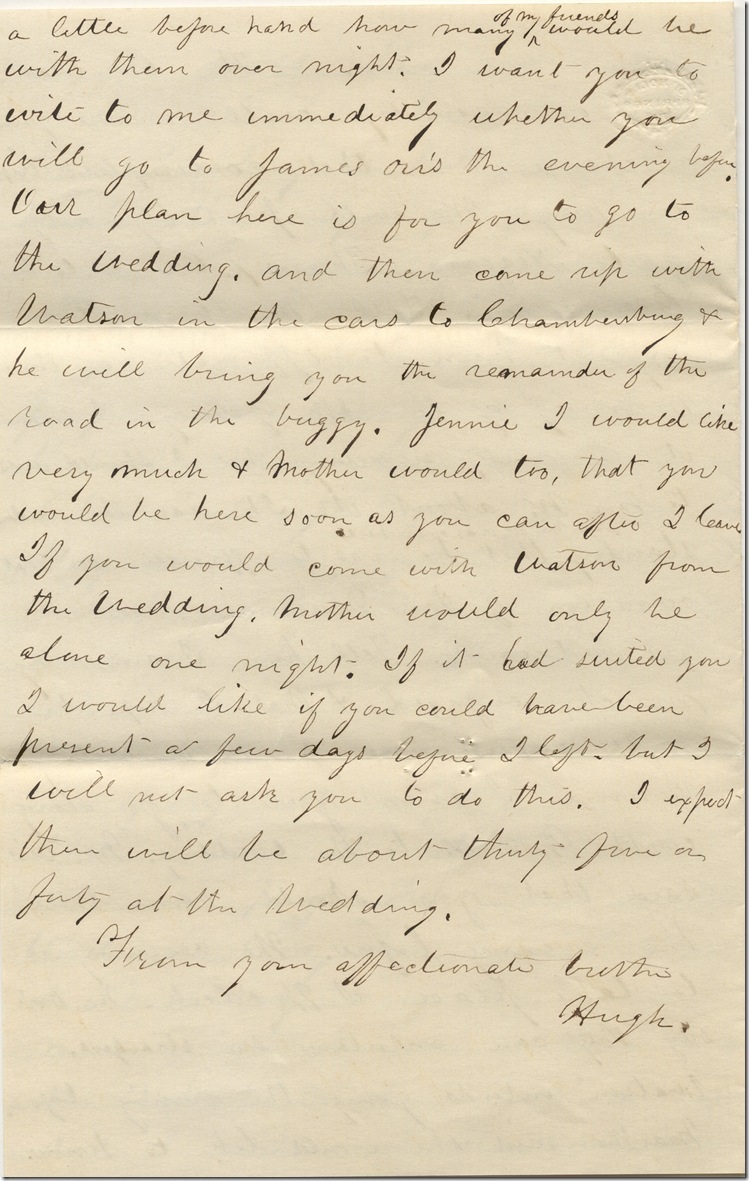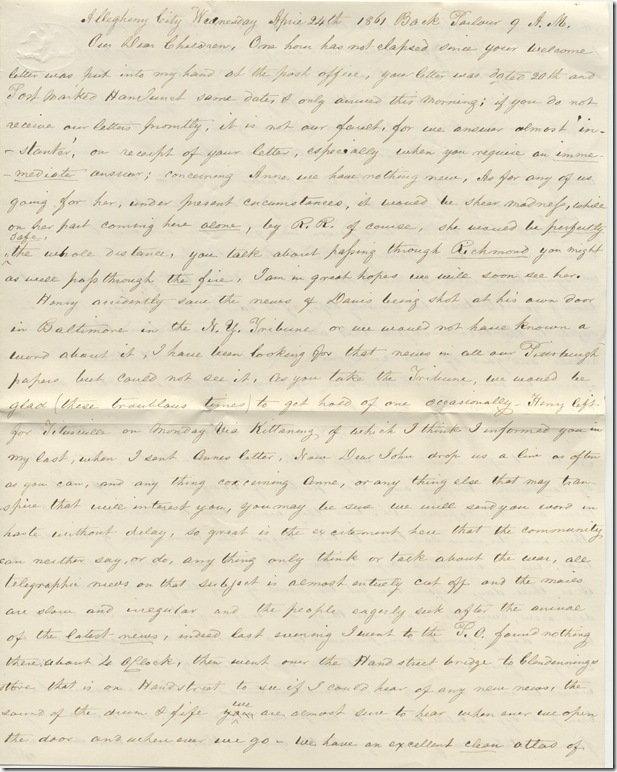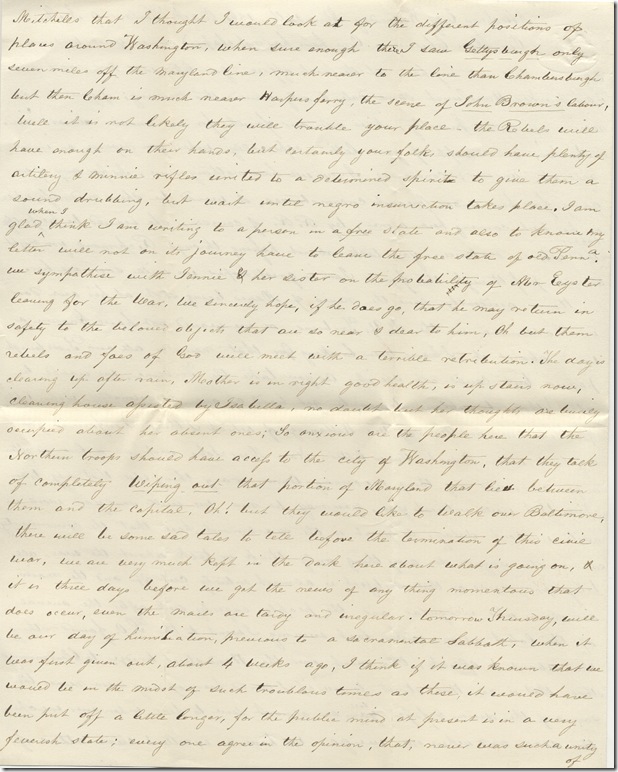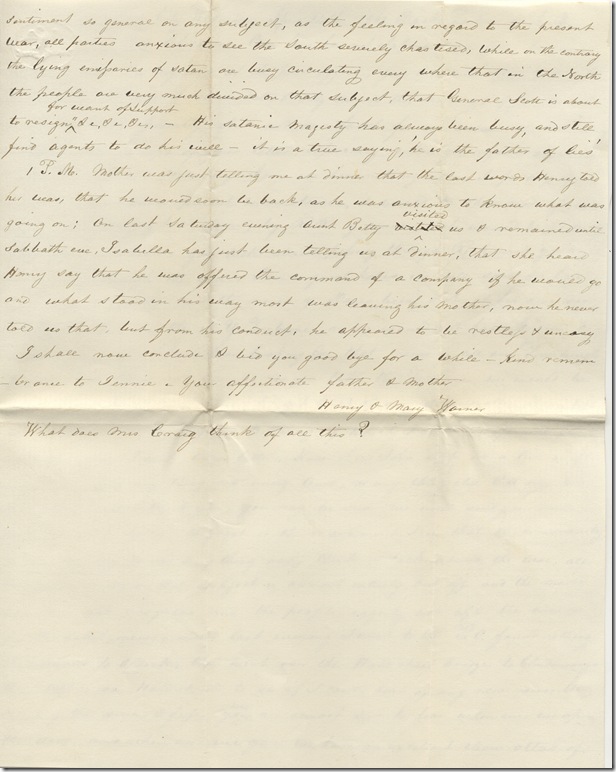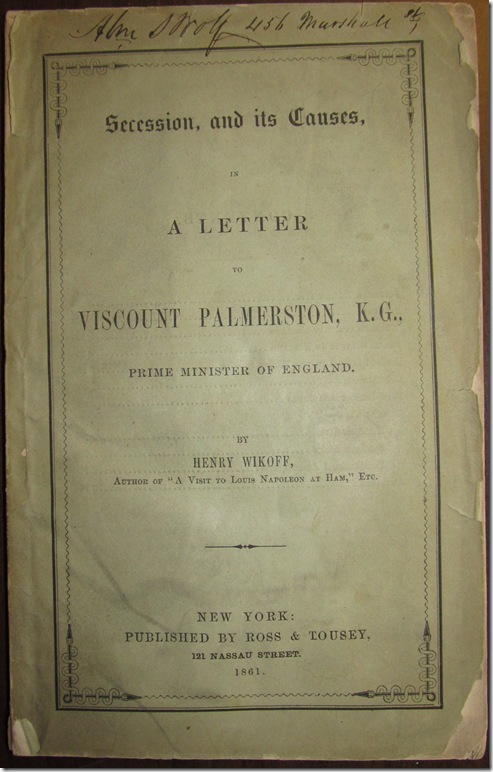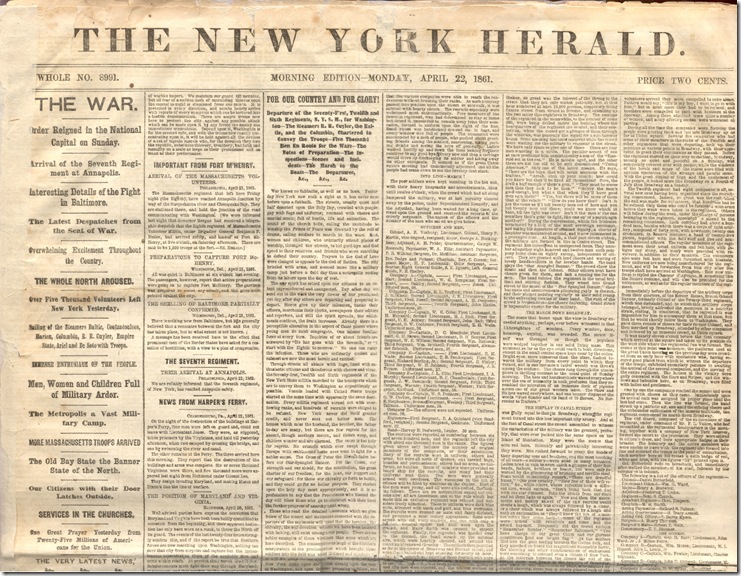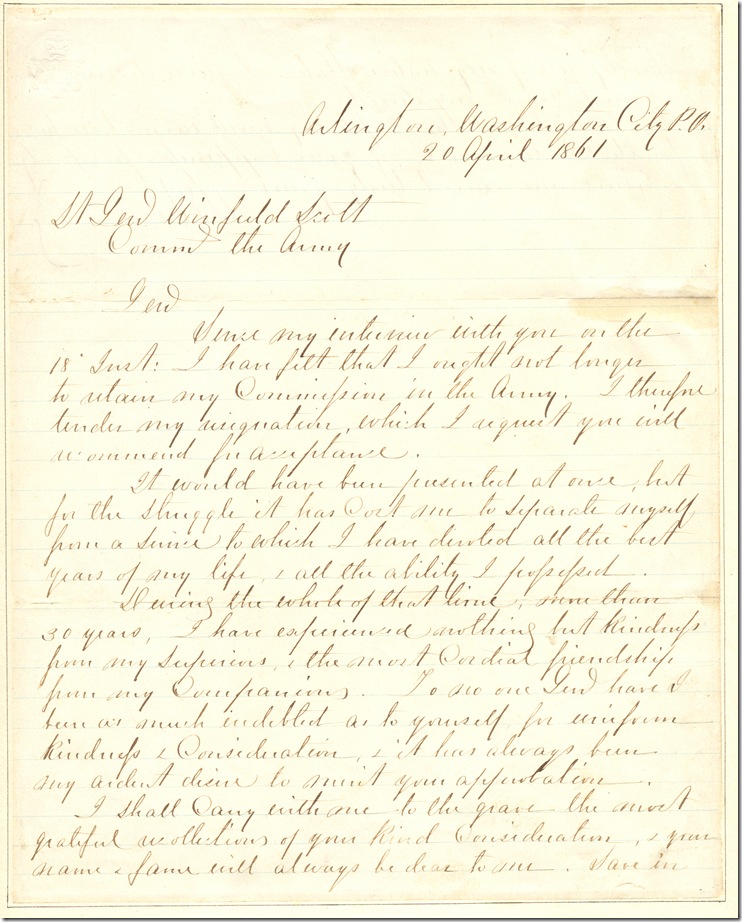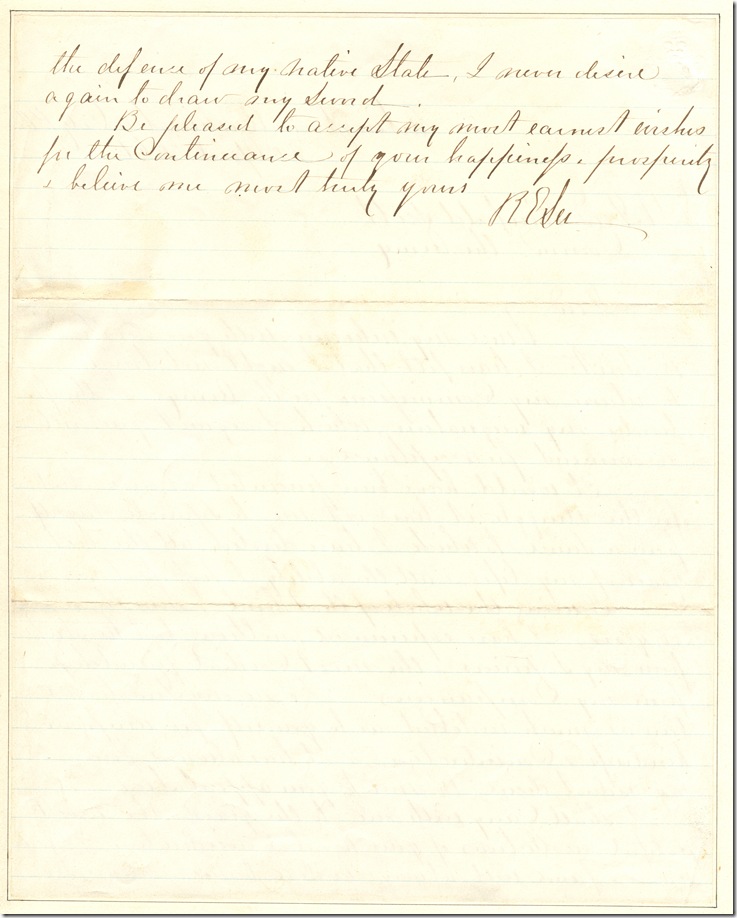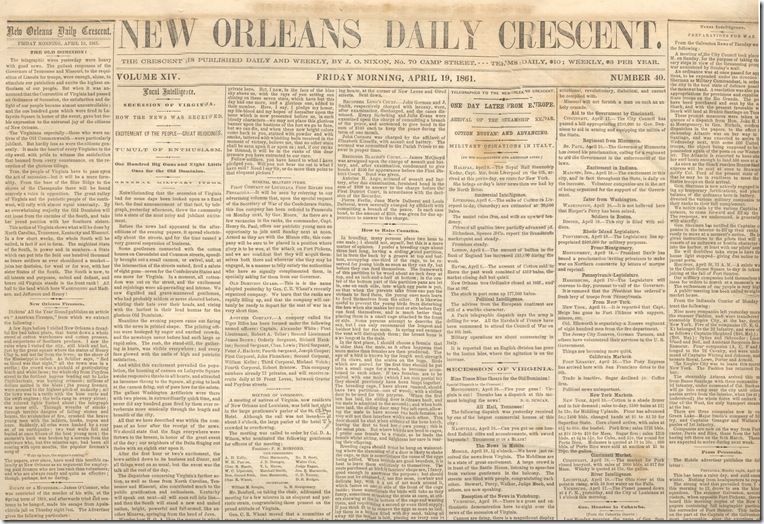Henry and Mary Warner lived in Allegheny City, Pennsylvania, now part of Pittsburgh. They are the great-grandparents of poet Marianne Moore. By the 1860s they had three surviving children: John, Henry, and Annie. Their letters to John, a Presbyterian minister living in Gettysburg, are preserved as part of Marianne Moore’s family papers.
Transcript:
Allegheny City Tuesday April 30th 1861 Back kitchen 4 P.M.
Our Dear Children Your very welcome & interesting letter reached us this morning at 8 oclock Dated 26th inst, we rejoice with you that you are still safe and we hope every day, that now will pass by, will find you more & more secure from the attack of those, from whom, seven years ago, we could not be made believe a blow of that kind would come, however on thinking over these things, we must come to the conclusion, every night, on lying down in our beds, Mrs Craig, Mrs Eyster, You, & ourselves, It is only Our Heavenly Father, “who maketh us to dwell in safety.” We are happy to inform you we are all in excellent health & cheerful, we now feel resigned to leave the issue of this confused & really frightful state of affairs to Him who alone is able to bring order out of confusion, the drum & fife, is at this moment sounding in my ears, and although it would seem that far more men than is needed are already mustered into service, they are recruiting, & drumming up for more, as though men were scarce—The fair ground is covered with tents, the drill is going on there, our own companies, and the companies arriving from the counties around concentrate there, ready to be called out when more troops are demanded, or, on any other occasion, men are busy planting cannon on the surrounding heights &c, &c; captains of Steamboats coming up the river, tell us, the border states—Kentucky, Tennessee &c&, are as rallied for succession as South Carolina, with few exceptions, say two, out of every twenty inhabitants, that, they are treacherously rotten, and not to be depended upon, this is a horrible state of affairs, and plainly going to shew, that, at last, the time has arrived, a justly offended God, will espouse the cause of the down trodden and cruelly treated slave, who has been unjustly robbed and deprived of every right that man has a right to claim from his fellow man—Verily, a righteous God to judge the Earth there is. When we write to Anne our letters are very short, we never send her any of your letters, nor do we allude to the cause of the present bad state of affairs existing around us, for it is not an uncommon affair to open letters now in the Southern States; Henry is in Titusville, Mr. Woodsides told me yesterday he saw Him & Joe on last friday and they were well & in good spirits then—last Sabbath was our communion—Mr Coleman assisted, I am sorry to find fault with a minister in the pulpit but I do think he done the cause, more harm than good—he would sometimes become so excited both in the pulpit and when addressing a table that his declamation was terrific—I think his mind is carried away by the state of affairs existing around, I think the people will try & persuade Mr. Clark not to have him again—the “still small voice of the gospel” is for before such gestures & roaring out—Many a sad heart was there owing to the absence of sons, brothers, husbands, & fathers, going & gone to this unnatural war. Aunt B. & Asy sends their kind remembrance to you—We received a letter from Anne, she says Robert is not willing for her to leave L and that Robert also says, we are in as much, if not more, danger than they are; we do not think Robert is much of a judge these matters—Dr Prestly is very much failed—Dave is able to walk about, but weak—our kindest rememberance to Jennie Your affectionate father & mother
Henry & Mary Warner
P.S. Isabella is with us, House cleaning is still going on, Mrs Boyle paid us a visit yesterday, & says, she wont clean house until this fuss is over, for, it but be, that after all her trouble of cleaning, the rebels might burn it, then he labour would go for nothing, wise woman that
Citation: Henry and Mary Warner, autograph letter signed to John and Jennie Warner. Allegheny City [Pittsburgh], 30 April 1861. Moore VI:04:17
